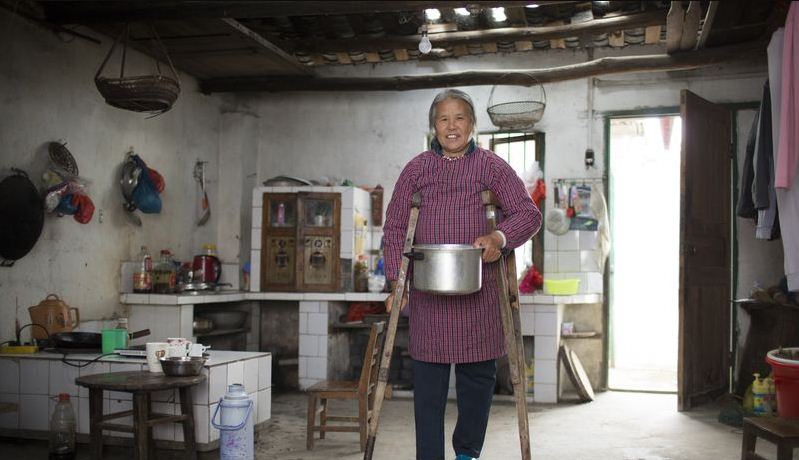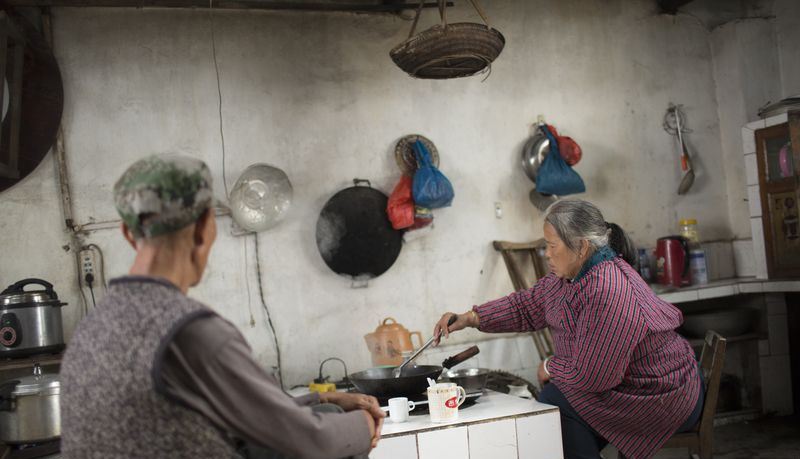Cormorant fishing Guilin — Meet the legendary fishermen of Li river
I saw an article about the ancient fisherman who caught fish using cormorants on the Li River (Lijiang) a year ago, along with a stunning sunset photo. And now, my companion tourist and I are off to China to observe this magnificent technique of fishing, which has been practiced for over 1,300 years. Let’s have a look at cormorant fishing Guilin and the life of a Li river fisherman on my cormorant fishing Li river blog.

Pinpoint the “coordinate” of fishermen
It was difficult to determine the position of fisherman before we left. We looked up the information on the Internet and discovered it in Yangshuo County. That was all there was to it. We began our quest with little broad evidence.

When we got in Guilin, it was pouring. In the middle of November, the temperature dropped 5-6 degrees Celsius at night, and the wind blew colder. We remained at a riverfront hostel and awaited the bus to Yangshou the following morning. It was a major issue because we couldn’t communicate in Chinese. We installed the Google Translate offline app on our phones and utilized it anytime we wanted to translate into Chinese. It also made it easy for us to discover different streets.



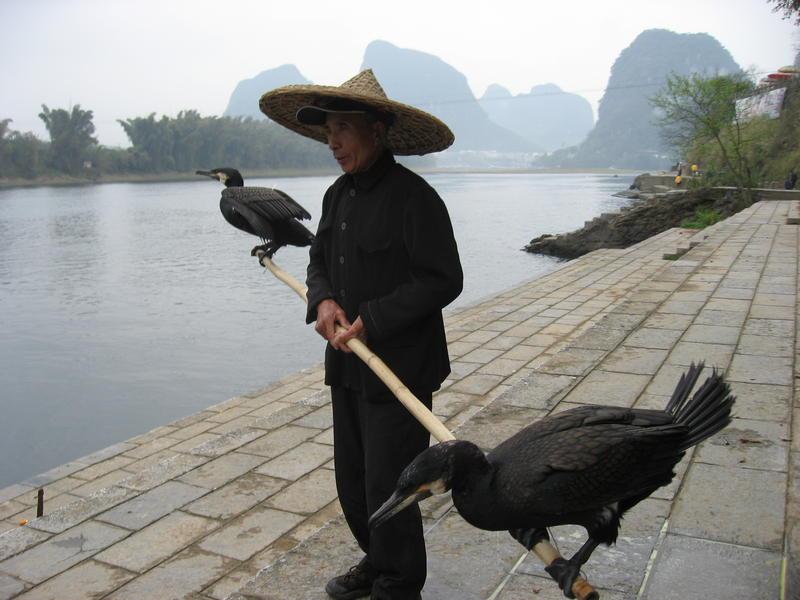
Because local regions in China are spread out, you may drive from any point to your goal between the hours of 7 a.m. and 3 p.m. When we initially arrived in Yangshuo, we saw the Li River for the first time. As we strolled down the riverbank, which was lined with stones and a straight line of bamboos, the river seemed lovely. We were overcome with emotion as we realized we would be seeing old fisherman very soon. Despite walking about for the entire afternoon, there were just a few elderly folks leasing cormorants for pictures.
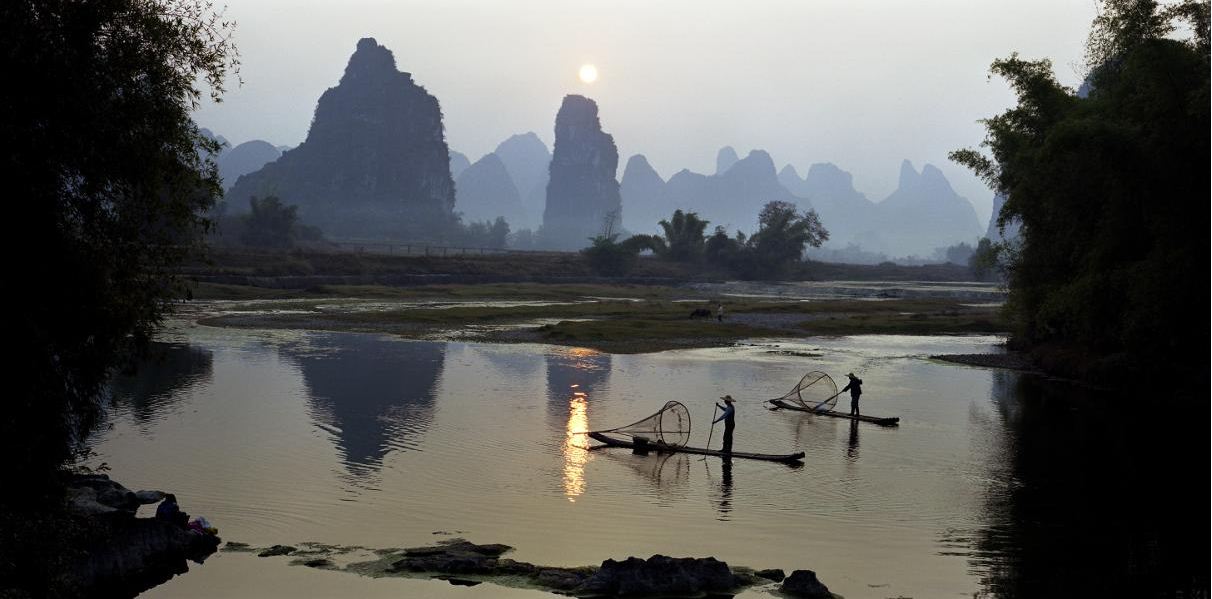
We reluctantly returned to our motel and inquired of the owner for further information. “You won’t be able to find them here. “You must travel to Yangi or Xingping,” he said. We took a bus to Yangi the next morning because it is halfway between Yangshuo and Xingping. In the afternoon, we chartered a tourist boat to sail around the river in the hopes of meeting some old fisherman.



We did not, however, meet anyone. Finally, we decided to pull over at a dock where many Chinese visitors were snapping photographs. I presented a snapshot of an elderly fisherman on my phone to a local photographer in the hopes that he would know something. Fortunately, he indicated he could contact the individual, but we would have to pay him. We agreed, despite the fact that the compensation was rather high.

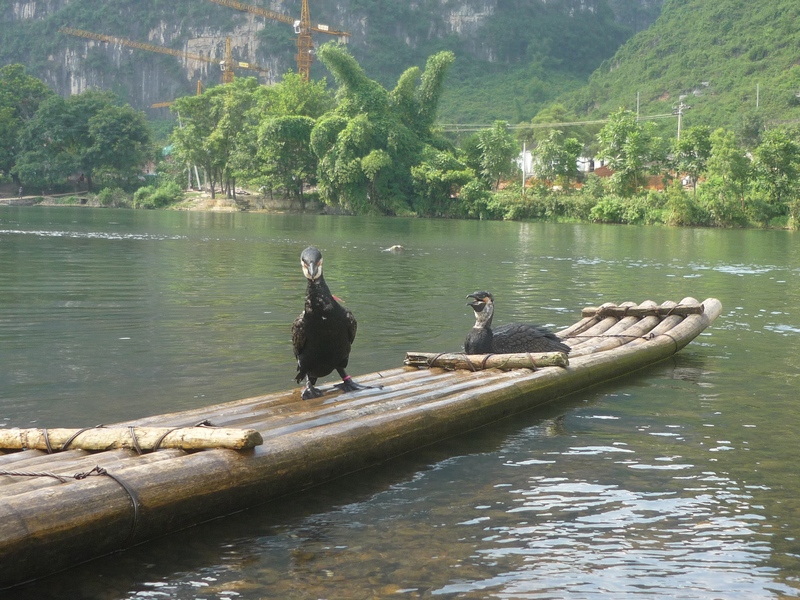
A chance to meet Mr. Huang
After about an hour, I heard the sound of the motorboat and an elderly guy approached. He anchored and came over to see us. We were overjoyed because we would finally be able to meet the man we had seen in the newspaper and had been hunting for for over three days. He showed us an album that had all of his photographs that had been featured in publications. He was a well-known figure!
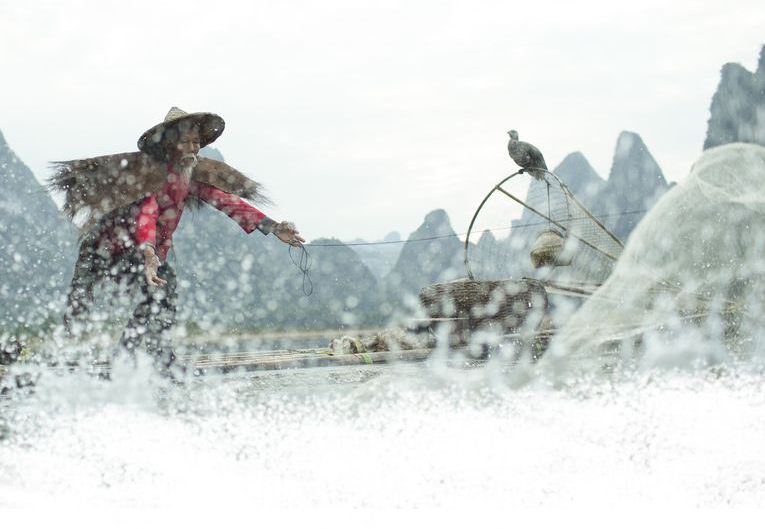
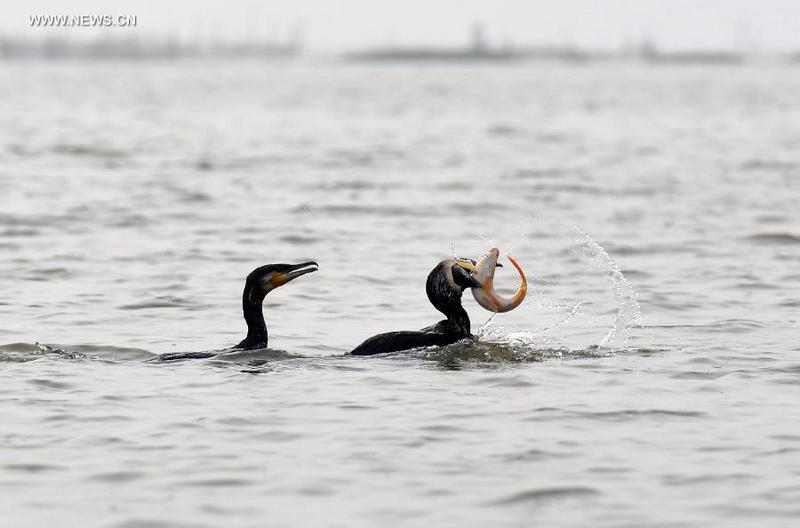
Mr. Huang, the old guy, is 69 years old and goes fishing in the Li River every day. His wife and he live in a tiny fishing community. Their children have grown up and moved on with their lives. He is tiny and dressed in a crimson shirt embroidered with dragon and phoenix motifs, as well as a straw coat and bamboo hat. His look on the boat in the sunset is similar to that of daring men sailing throughout the world in Jin Yong’s fiction works, a Chinese author and essayist.
He began to work, and I began to snap photographs. Two cormorants appeared to be somewhat larger than Muscovy ducks, with a robust and powerful appearance. To keep the cormorants under control, the fisherman attached a trap around the base of their throat. This kept the birds from consuming the fish. The hungry birds dove into the frigid water to grab fish, which they promptly returned to the man. They were two knowledgeable employees. Following a working shift, they were given some tiny fish.

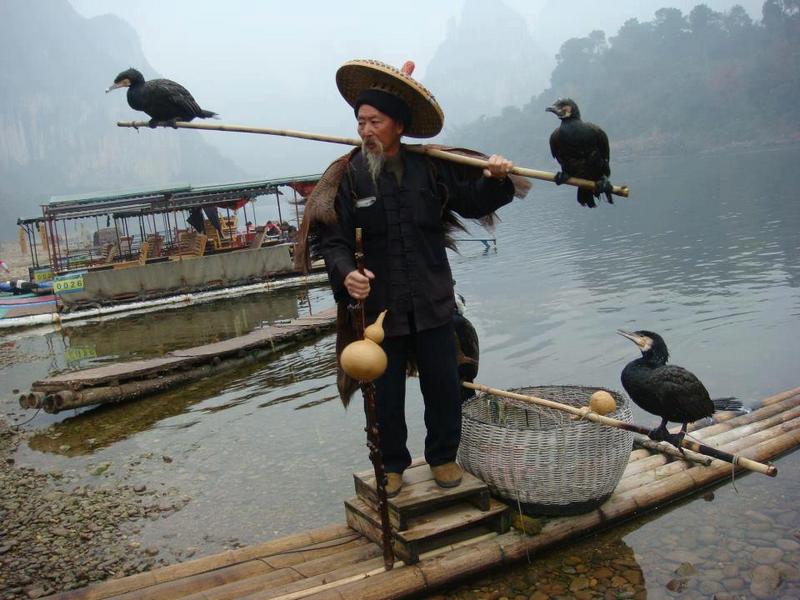

A lunch at Mr. Huang’s house
We said Mr. Huang farewell after shooting several photographs and vowed to return to his home. He handed us a name card with his photo, phone number, and address in Chinese scribbled on it. He told us a lot, and even though we couldn’t understand him, we attempted to assure him we’d be there the next morning.
We could easily make our way to his residence. It is located in Xingping’s fishing village. In early January, the tide recedes, exposing the river bottom. His three-bedroom home is nestled along a narrow path. His wife prepared a modest meal of pork cooked with tofu and noni wine for us. We slept under bamboo trees in their back yard till late afternoon before saying farewell to Mr. Huang and his wife and continuing our exploration adventure in China.
Further information
Itinerary
How to get to Guilin: You can travel to Guilin by many ways.
+ By airplane: If you book a ticket of Xiamen Airlines, you will travel from HCMC with a transit at Xiamen, and then fly to Guilin airport. If you take China Southern Airlines, from HCMC, you will have two transits at Bangkok (Thailand) and Nanning (China) before you fly to Guilin.
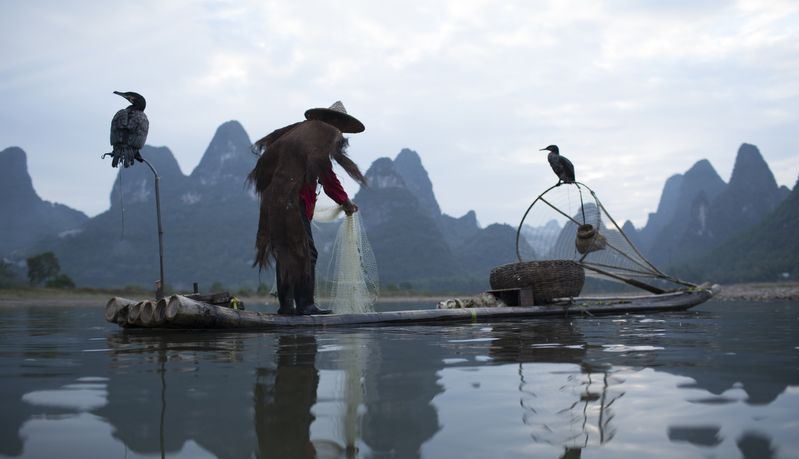
+ By land: From Gia Lam station (Hanoi), you can take a train to Nanning. The train departs at 21:30 daily at VND750,000/ticket (~$33). In addition, if you travel in a group of 6 or more, the ticket price will be VND530,000/ticket (~$24). From Nanning, you can book a flight of Xiamen Airlines or China Southern Airlines to Guilin.
+ To see fishermen, go to Guilin, take a bus to Yangshuo and then take another bus to Xingping. It will take you about a day and a half.
Visa
You can apply for a visa at the Chinese embassy (in Hanoi) or Consulate (in Ho Chi Minh City).
If you want to save time, you can book the services of visa agents.

Language
To buy items from Chinese people, you should understand some fundamental communication Chinese, such as numbers. Set up the Google Translate App on your phone (it works offline without 3G) to converse with locals.
Currency
You are advised to exchange Vietnam Dong to renminbi in Vietnam to get a good rate. It’s quite difficult and takes time to exchange in China.
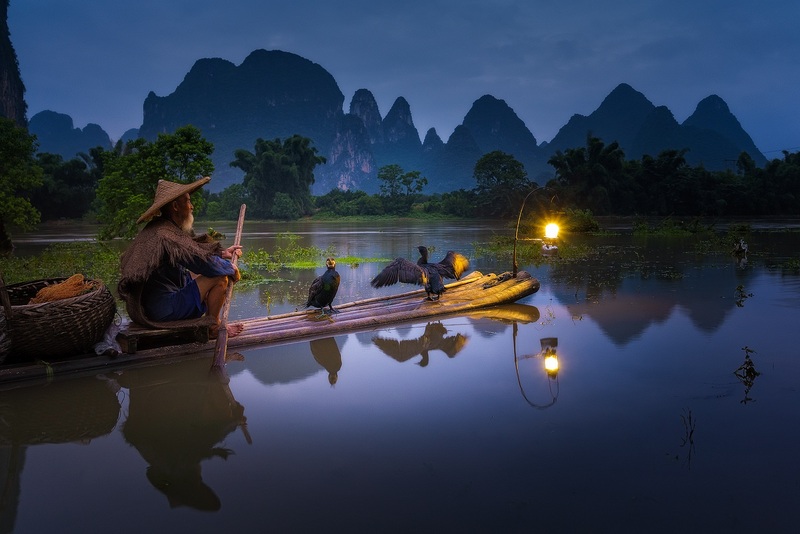
Food
Chinese dishes are often cooked with lots of oil. You should bring some dry foods in case you can’t eat local foods.
Service
Guilin and China as well offer very good services, which are strictly and clearly controlled by the government. Guilin is crowded with Chinese tourists all year round. Chinese account for the main bulk of their tourism along with the addition of foreign tourists.















